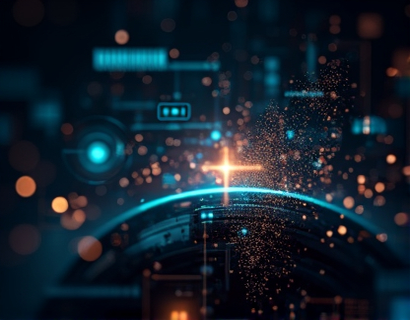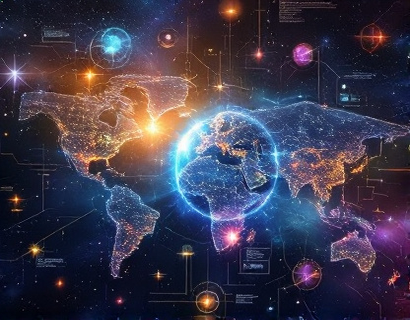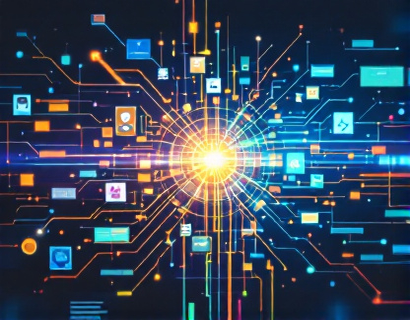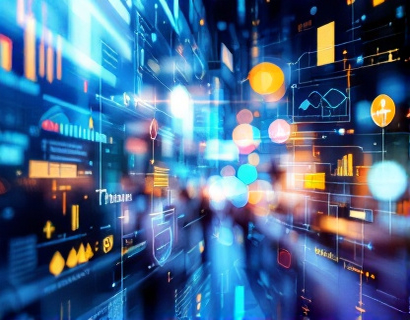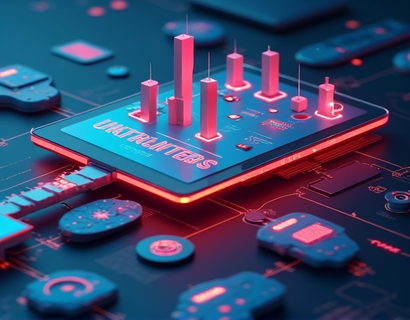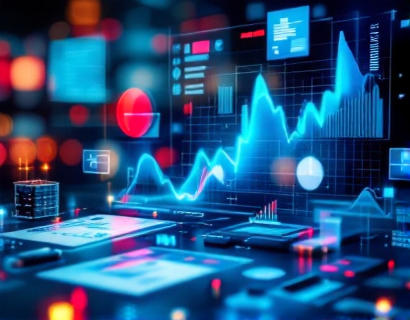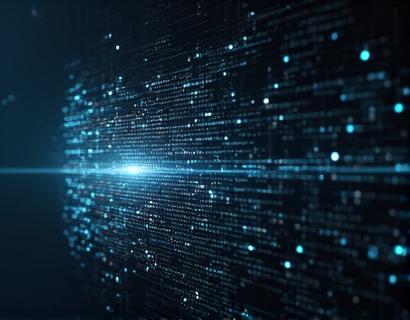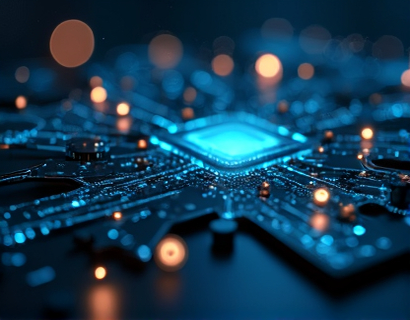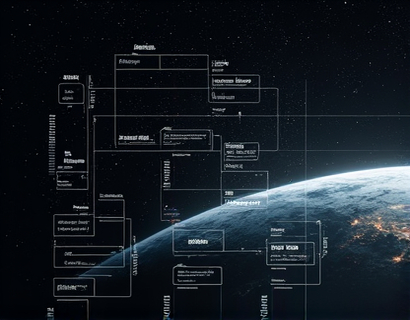AI-Driven Ucosystem: Revolutionizing Digital Experiences with Crypto-Powered Innovations
The integration of Artificial Intelligence (AI) and cryptocurrency is ushering in a new era of digital interactions, one that promises to be more secure, efficient, and empowering for users worldwide. This comprehensive guide delves into the transformative power of a crypto-powered AI ecosystem, exploring how these technologies are converging to create innovative applications that enhance user experiences and drive financial empowerment. For tech-savvy individuals, cryptocurrency enthusiasts, AI aficionados, and digital innovators, this article offers insights into the future of digital engagement and the role of advanced technologies in shaping it.
Understanding the Crypto-Powered AI Ecosystem
The crypto-powered AI ecosystem represents a synergy between blockchain technology and machine learning, creating a platform where data integrity, security, and transparency are paramount. Blockchain's decentralized nature ensures that AI models and data are not controlled by a single entity, reducing the risk of bias and manipulation. This decentralization also facilitates trust among users, as transactions and interactions are recorded on an immutable ledger.
AI, on the other hand, brings intelligence and automation to this ecosystem. Machine learning algorithms can analyze vast amounts of data to provide personalized experiences, predict user behavior, and optimize system performance. When combined with the security and transparency of blockchain, AI can operate with a level of trust and efficiency that traditional systems cannot match.
Enhancing User Experiences through AI and Crypto
One of the most significant impacts of the crypto-powered AI ecosystem is the enhancement of user experiences. Personalization is a key area where these technologies shine. AI algorithms can process user data to offer tailored content, recommendations, and services. For instance, a crypto-powered recommendation engine can analyze a user's transaction history, preferences, and behavior to suggest products or services that align with their interests, all while ensuring that the data is securely stored and managed on a blockchain.
Another area is user authentication and identity management. Traditional login systems are vulnerable to hacking and data breaches. By leveraging blockchain and AI, users can have decentralized identities that are secure and self-sovereign. AI can help in creating robust authentication mechanisms, such as biometric verification, while blockchain ensures that identity data is tamper-proof and user-controlled.
Financial Empowerment through Decentralized Finance (DeFi)
Decentralized Finance (DeFi) is a prime example of how the crypto-powered AI ecosystem is driving financial empowerment. DeFi platforms use smart contracts and blockchain to provide financial services without intermediaries, reducing costs and increasing accessibility. AI enhances these platforms by offering sophisticated tools for risk management, portfolio optimization, and automated trading.
For instance, AI-driven trading bots can analyze market data and make informed decisions in real-time, helping users maximize their returns. These bots can also monitor multiple DeFi protocols to identify the best opportunities for yield farming, staking, and lending. The transparency of blockchain ensures that all transactions are visible and verifiable, reducing the risk of fraud and increasing trust in the system.
Smart Contracts and Automated Agreements
Smart contracts are self-executing contracts with the terms of the agreement directly written into code. When combined with AI, smart contracts can become even more powerful. AI can help in drafting and optimizing smart contracts by analyzing legal texts, identifying potential risks, and suggesting improvements. This not only speeds up the contract creation process but also ensures that the contracts are more robust and less prone to errors.
In the context of the crypto-powered AI ecosystem, smart contracts can automate a wide range of processes, from supply chain management to insurance claims. For example, in supply chain finance, AI can predict demand and optimize inventory levels, while smart contracts can automatically trigger payments when certain conditions are met, ensuring that all parties are compliant and compensated fairly.
Data Marketplaces and User Ownership
Data has become a valuable asset in the digital age, and the crypto-powered AI ecosystem is redefining how data is owned and monetized. Traditional data marketplaces often centralize data, making users vulnerable to privacy breaches and data misuse. In contrast, blockchain-based data marketplaces allow users to own and control their data, deciding who can access it and for what purpose.
AI plays a crucial role in these marketplaces by enabling data anonymization and ensuring that sensitive information is protected. Users can sell their data to organizations that need it for AI training or other purposes, receiving cryptocurrency payments in return. This not only provides a new revenue stream for users but also incentivizes the creation of high-quality, diverse data sets, which are essential for training advanced AI models.
Challenges and Considerations
While the crypto-powered AI ecosystem offers numerous benefits, it also comes with challenges that need to be addressed. One of the primary concerns is scalability. Blockchain networks, especially those using proof-of-work consensus mechanisms, can struggle with high transaction volumes and slow processing times. However, the development of more efficient consensus algorithms and layer 2 solutions is addressing these issues.
Another challenge is regulatory uncertainty. The intersection of cryptocurrency and AI falls into a gray area in many jurisdictions, leading to varying degrees of acceptance and regulation. It is crucial for developers and businesses to stay informed about regulatory changes and ensure compliance to avoid legal issues.
Privacy is also a significant concern. While blockchain provides transparency, it can also expose user data if not properly managed. Implementing zero-knowledge proofs and other privacy-preserving techniques is essential to maintain user trust and comply with data protection regulations like GDPR.
Future Prospects and Innovations
The future of the crypto-powered AI ecosystem is bright, with numerous innovations on the horizon. One area of excitement is the integration of AI with Web3 technologies, which aim to create a fully decentralized internet. Web3 applications powered by AI can offer unparalleled levels of personalization, security, and user control, redefining how we interact with digital services.
Another promising development is the use of AI in blockchain governance. AI can help in monitoring network activity, detecting anomalies, and proposing improvements to the protocol. This can lead to more resilient and adaptive blockchain systems that can evolve with the needs of the community.
Furthermore, the combination of AI and quantum computing holds the potential to solve complex problems that are currently intractable. Quantum AI could revolutionize fields such as drug discovery, climate modeling, and cryptography, opening up new possibilities for both technology and society.
Conclusion
The convergence of AI and cryptocurrency is not just a technological trend but a fundamental shift in how we approach digital interactions. The crypto-powered AI ecosystem is poised to enhance user experiences, drive financial empowerment, and create new opportunities for innovation. As these technologies continue to evolve, they will play an increasingly important role in shaping the future of the digital world. For those interested in staying at the forefront of this revolution, embracing the potential of AI and cryptocurrency is essential.










